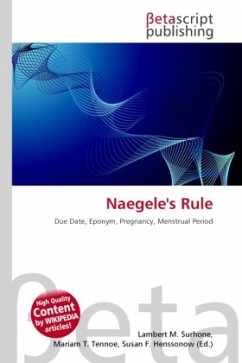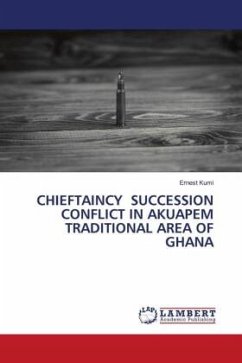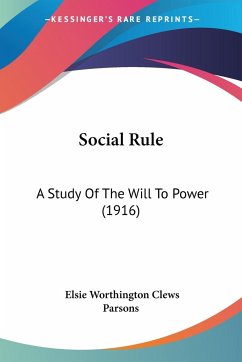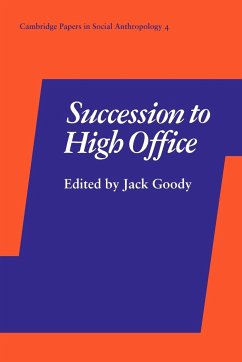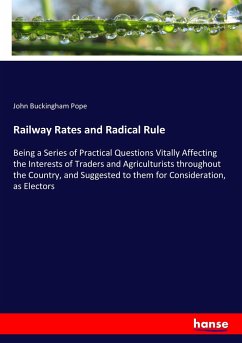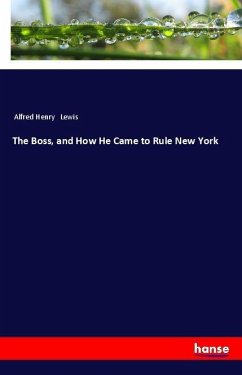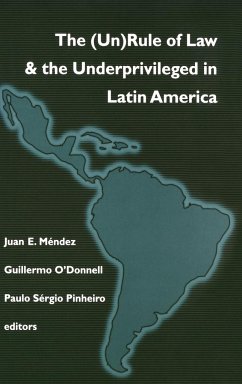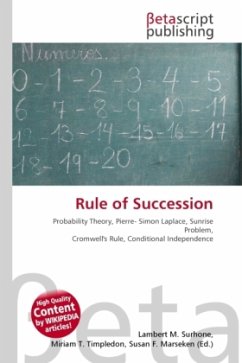
Rule of Succession
Versandkostenfrei!
Versandfertig in 6-10 Tagen
23,99 €
inkl. MwSt.

PAYBACK Punkte
12 °P sammeln!
High Quality Content by WIKIPEDIA articles! In probability theory, the rule of succession is a formula introduced in the 18th century by Pierre-Simon Laplace in the course of treating the sunrise problem. The formula is still used, particularly to estimate underlying probabilities for events which have not been observed to occur at all in (finite) sample data. Assigning such events a zero probability would contravene Cromwell's rule, and is not justified by the evidence. If we repeat an experiment one of which we know that it can be a success or fail -- n times independently and get s successe...
High Quality Content by WIKIPEDIA articles! In probability theory, the rule of succession is a formula introduced in the 18th century by Pierre-Simon Laplace in the course of treating the sunrise problem. The formula is still used, particularly to estimate underlying probabilities for events which have not been observed to occur at all in (finite) sample data. Assigning such events a zero probability would contravene Cromwell's rule, and is not justified by the evidence. If we repeat an experiment one of which we know that it can be a success or fail -- n times independently and get s successes, then what is the probability that the next repetition will again be a success?



